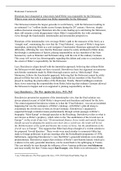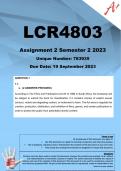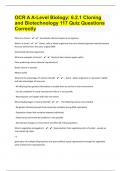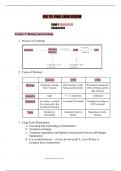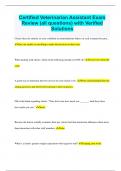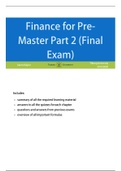Tesis
A Level History Coursework - To What Extent was Hitler Responsible for the Holocaust
- Grado
- Institución
A Level History Edexcel Holocaust Coursework. Grade A Star, 38/40, the coursework unit counts for 20% of your final history a level grade. Title - To What Extent was Hitler solely responsible for the Holocaust? A Star officially marked
[Mostrar más]
